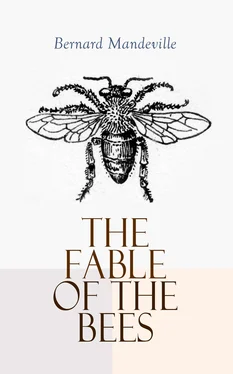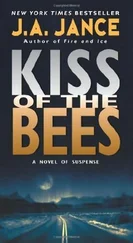A man would be laughed at by most people, who should maintain that too much money could undo a nation: yet this has been the fate of Spain; to this the learned Don Diego Savedra ascribes the ruin of his country. The fruits of the earth in former ages had made Spain so rich, that King Lewis XI. of France being come to the court of Toledo, was astonished at its splendour, and said, that he had never seen any thing to be compared to it, either in Europe or Asia; he that in his travels to the Holy Land had run through every province of them. In the kingdom of Castile alone (if we may believe some writers), there were for the holy war, from all parts of the world got together one hundred thousand foot, ten thousand horse, and sixty thousand carriages for baggage, which Alonso III. maintained at his own charge, and paid every day, as well soldiers as officers and princes, every one according to his rank and dignity: nay, down to the reign of Ferdinand and Isabella (who equipped Columbus), and some time after, Spain was a fertile country, where trade and manufactures flourished, and had a knowing industrious people to boast of. But as soon as that mighty treasure, that was obtained with more hazard and cruelty than the world until then had known, and which to come at, by the Spaniard’s own confession, had cost the lives of twenty millions of Indians; as soon, I say, as that ocean of treasure came rolling in upon them, it took away their senses, and their industry forsook them. The farmer left his plough, the mechanic his tools, the merchant his compting-house, and every body scorning to work, took his pleasure and turned gentleman. They thought they had reason to value themselves above all their neighbours, and now nothing but the conquest of the world would serve them.
The consequence of this has been, that other nations have supplied what their own sloth and pride denied them; and when every body saw, that notwithstanding all the prohibitions the government could make against the exportation of bullion, the Spaniard would part with his money, and bring it you aboard himself at the hazard of his neck, all the world endeavoured to work for Spain. Gold and silver being by this means yearly divided and shared among all the trading countries, have made all things dear, and most nations of Europe industrious, except their owners, who, ever since their mighty acquisitions, sit with their arms across, and wait every year with impatience and anxiety, the arrival of their revenues from abroad, to pay others for what they have spent already: and thus by too much money, the making of colonies and other mismanagements, of which it was the occasion, Spain is, from a fruitful and well-peopled country, with all its mighty titles and possessions, made a barren and empty thoroughfare through which gold and silver pass from America to the rest of the world; and the nation, from a rich, acute, diligent, and laborious, become a slow, idle, proud, and beggarly people: So much for Spain. The next country where money is called the product, is Portugal, and the figure which that kingdom with all its gold makes in Europe, I think is not much to be envied.
The great art then to make a nation happy, and what we call flourishing, consists in giving every body an opportunity of being employed; which to compass, let a government’s first care be to promote as great a variety of manufactures, arts, and handicrafts, as human wit can invent; and the second, to encourage agriculture and fishery in all their branches, that the whole earth may be forced to exert itself as well as man; for as the one is an infallible maxim to draw vast multitudes of people into a nation, so the other is the only method to maintain them.
It is from this policy, and not the trifling regulations of lavishness and frugality (which will ever take their own course, according to the circumstances of the people), that the greatness and felicity of nations must be expected; for let the value of gold and silver either rise or fall, the enjoyment of all societies will ever depend upon the fruits of the earth, and the labour of the people; both which joined together are a more certain, a more inexhaustible, and a more real treasure, than the gold of Brazil, or the silver of Potosi.
Line 321. No honour now, &c.
Honour, in its figurative sense, is a chimera without truth or being, an invention of moralists and politicians, and signifies a certain principle of virtue not related to religion, found in some men that keeps them close to their duty and engagements whatever they be; as for example, a man of honour enters into a conspiracy with others to murder a king; he is obliged to go thorough stitch with it; and if overcome by remorse or good nature, he startles at the enormity of his purpose, discovers the plot, and turns a witness against his accomplices, he then forfeits his honour, at least among the party he belonged to. The excellency of this principle is, that the vulgar are destitute of it, and it is only to be met with in people of the better sort, as some oranges have kernels, and others not, though the outside be the same. In great families it is like the gout, generally counted hereditary, and all the lords children are born with it. In some that never felt any thing of it, it is acquired by conversation and reading (especially of romances), in others by preferment; but there is nothing that encourages the growth of it more than a sword, and upon the first wearing of one, some people have felt considerable shoots of it in four and twenty hours.
The chief and most important care a man of honour ought to have, is the preservation of this principle, and rather than forfeit it, he must lose his employments and estate, nay, life itself; for which reason, whatever humility he may show by way of good-breeding, he is allowed to put an inestimable value upon himself, as a possessor of this invisible ornament. The only method to preserve this principle, is to live up to the rules of honour, which are laws he is to walk by: himself is obliged always to be faithful to his trust, to prefer the public interest to his own, not to tell lies, nor defraud or wrong any body, and from others to suffer no affront, which is a term of art for every action designedly done to undervalue him.
The men of ancient honour, of which I reckon Don Quixote to have been the last upon record, were very nice observers of all these laws, and a great many more than I have named; but the moderns seem to be more remiss: they have a profound veneration for the last of them, but they pay not an equal obedience to any of the other; and whoever will but strictly comply with that I hint at, shall have abundance of trespasses against all the rest connived at.
A man of honour is always counted impartial, and a man of sense of course; for nobody never heard of a man of honour that was a fool: for this reason, he has nothing to do with the law, and is always allowed to be a judge in his own case; and if the least injury be done either to himself or his friend, his relation, his servant, his dog, or any thing which he is pleased to take under his honourable protection, satisfaction must be forthwith demanded; and if it proves an affront, and he that gave it like wise a man of honour, a battle must ensue. From all this it is evident, that a man of honour must be possessed of courage, and that without it his other principle would be no more than a sword without a point. Let us, therefore, examine what courage consists in, and whether it be, as most people will have it, a real something that valiant men have in their nature distinct from all their other qualities or not.
There is nothing so universally sincere upon earth, as the love which all creatures, that are capable of any, bear to themselves; and as there is no love but what implies a care to preserve the thing beloved, so there is nothing more sincere in any creature than his will, wishes, and endeavours, to preserve himself. This is the law of nature, by which no creature is endued with any appetite or passion, but what either directly or indirectly tends to the preservation either of himself or his species.
Читать дальше












